
California Locations
Los Angeles LASIK Eye Surgery
Top-Rated LASIK & Cataract Surgery in Los Angeles
At NVISION Eye Centers, we provide industry-leading LASIK eye surgery and cataract surgery to patients throughout Los Angeles and surrounding communities. With multiple locations—including Torrance, Rowland Heights, Gardena, San Pedro, Covina, and Westlake Village—our expert surgeons deliver life-changing vision correction with personalized care tailored to your unique needs.
Our board-certified ophthalmologists and skilled clinical team use the latest laser vision correction technology to help patients reduce or eliminate their dependence on glasses and contact lenses. Whether you’re considering LASIK surgery for clear, hassle-free vision or need advanced cataract treatment, we are committed to delivering the best possible outcomes.
Why Choose NVISION for LASIK & Cataract Surgery in Los Angeles?
- Top LASIK and cataract surgeons with decades of experience
- More than 2 million successful vision correction procedures performed
- The latest in laser and diagnostic technology for precise, customized treatment
- Flexible financing options, including $0 down and affordable monthly payments*
- Free LASIK consultations to determine your candidacy
- Use your FSA/HSA balance for LASIK before it expires in December
At NVISION, we believe in providing exceptional vision correction with a lifetime commitment to your eye health. Our Los Angeles-area locations in Torrance, Rowland Heights, Gardena, San Pedro, Covina, and Westlake Village make it easy to find expert LASIK and cataract care near you.
Schedule your FREE LASIK consultation today and take the first step toward better vision!
*Subject to credit approval. Minimum monthly payments required. See provider for details.
Locations in Los Angeles
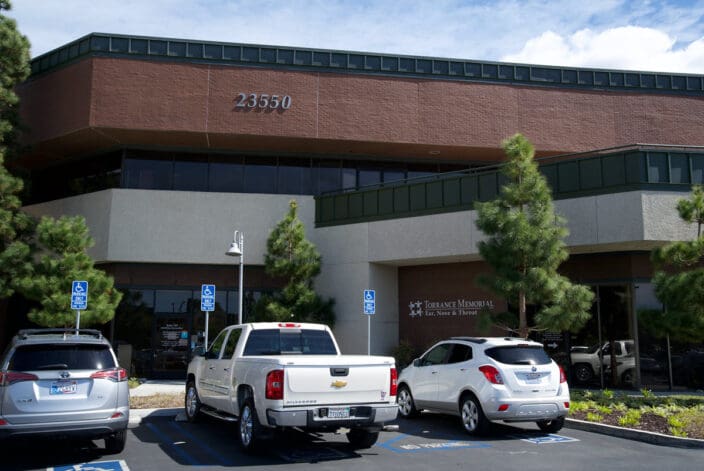
NVISION Eye Centers - Torrance-South Bay
Torrance, CA 90505
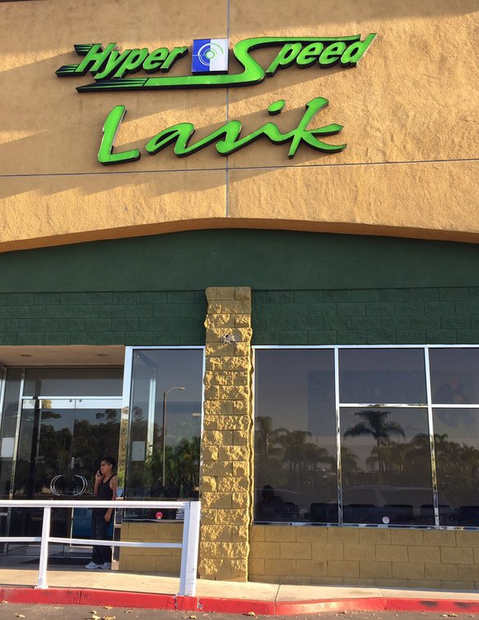
HyperSpeed LASIK - An NVISION® Eye Center
Rowland Heights, CA 91748
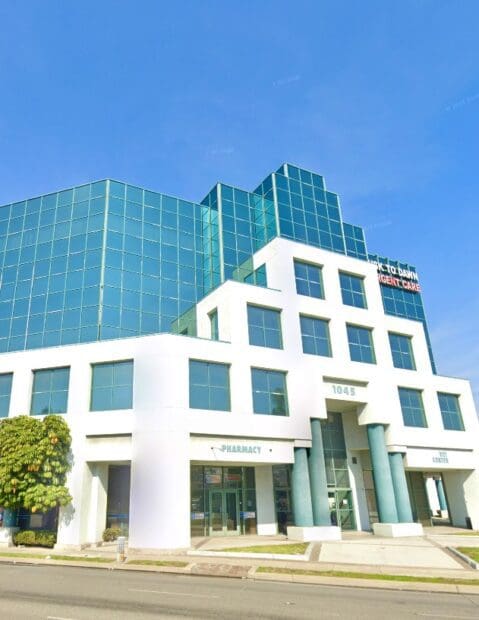
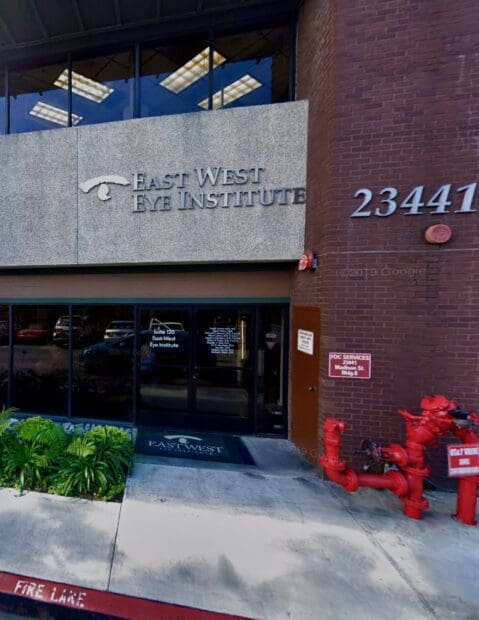
East West Eye Institute
Torrance, CA 90505
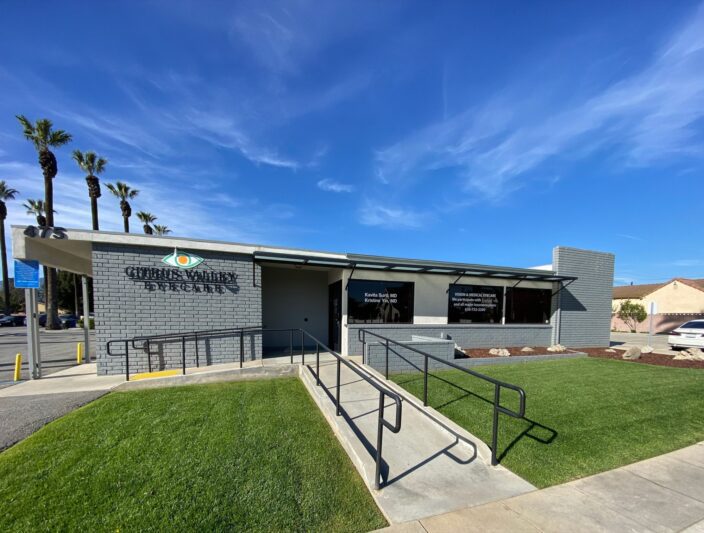
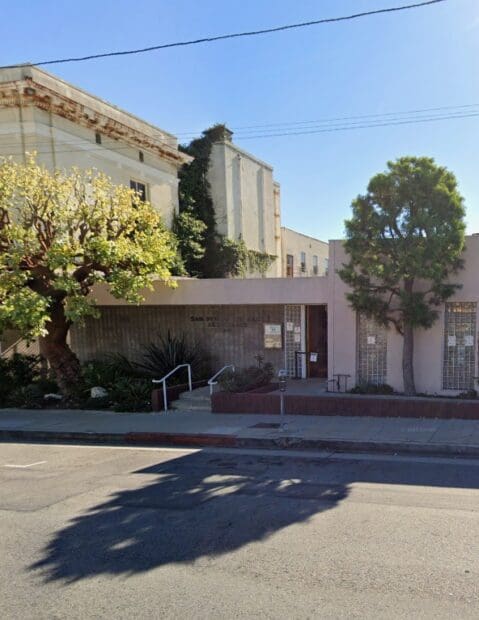
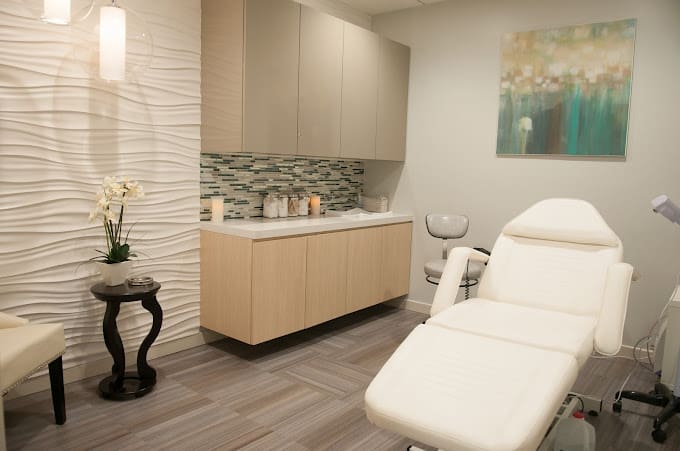
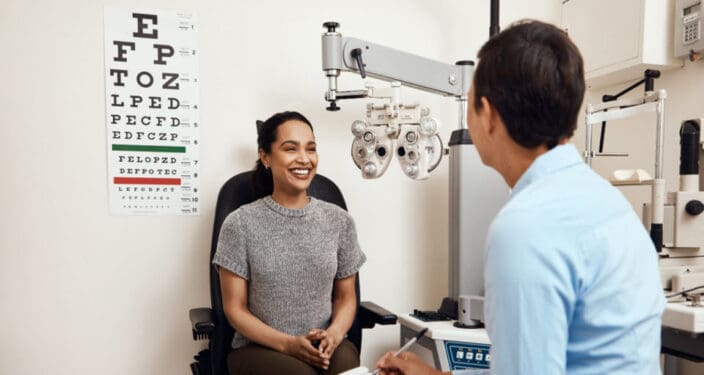
Retina Associates of Southern California
Torrance, CA 90505
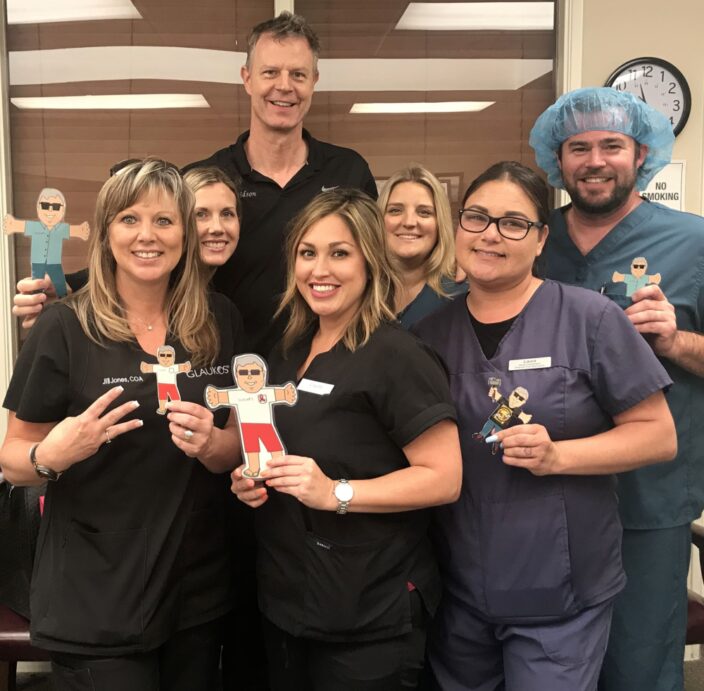
Miramar Eye Specialists Medical Group
Westlake Village, CA 91361
Vision Correction Procedures in Los Angeles
Today's life-changing procedures make it possible to improve your vision to 20/20—or better.
LASIK Eye Surgery
LASIK eye surgery is a safe, highly effective solution to correct vision and eliminate the need for glasses or contacts. At NVISION, our expert surgeons use state-of-the-art technology and advanced techniques to deliver exceptional results and have you back to your routine quickly.
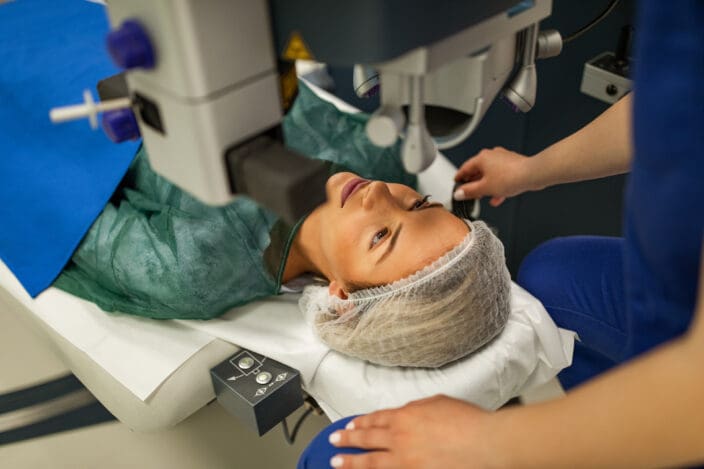
EVO ICL™ (Implantable Collamer Lens)
Say goodbye to glasses and contacts with EVO ICL™! This advanced procedure is an excellent option for patients who aren’t LASIK candidates. By placing a biocompatible lens in your eye—without removing the natural lens—EVO ICL™ corrects nearsightedness and astigmatism, providing clear, long-lasting vision.

Cataract Surgery
Cloudy vision holding you back? Our advanced cataract surgery, featuring laser-assisted technology and lifestyle lenses, can restore your sight and help you enjoy life’s moments clearly again.
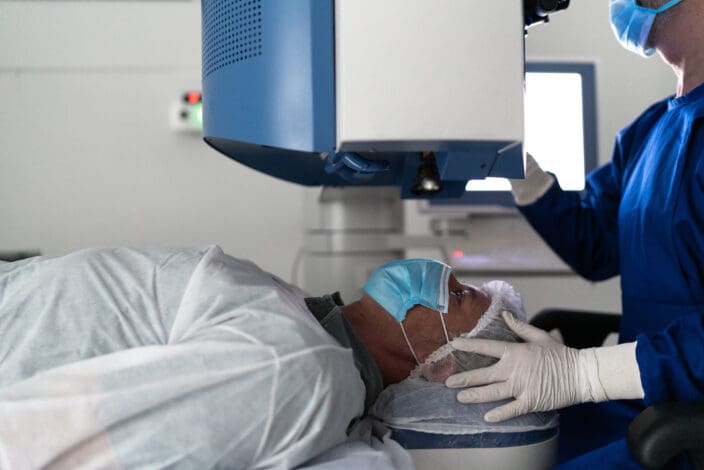
Other Procedures
AcrySof IQ Vivity Extended Vision IOL
The AcrySof™ IQ Vivity™ IOLs are artificial lenses implanted in the eye to correct vision in adults during cataract surgery.
Comprehensive Ophthalmology
Comprehensive ophthalmology handles general eye exams and common conditions such as cataracts. macular degeneration, refractive errors, glaucoma, and more. The service also provides screening examinations to help detect potential illnesses.
Contoura® Vision LASIK
What is Contoura® Vision LASIK?
Contoura® Vision LASIK is an advanced form of LASIK eye surgery that utilizes topography-guided technology to tailor the laser treatment to the unique characteristics of an individual’s cornea. This technology aims to provide a more personalized and precise correction of refractive errors, including nearsightedness, farsightedness, and astigmatism. Contoura® Vision creates a highly precise and accurate map of a patient’s eyes measuring up to 22,000 unique elevation points on each eye.
Key features of Contoura® Vision LASIK include:
- Topography-Guided Treatment:
Contoura® Vision LASIK utilizes detailed corneal mapping or corneal topography to create a highly customized treatment plan. This map captures thousands of data points on the cornea, allowing for a more precise analysis of its shape and irregularities. - Personalized Correction:
The topography-guided technology enables the laser to precisely reshape the cornea based on the unique imperfections detected in the corneal map. This personalized approach aims to address higher-order aberrations, improving not only traditional refractive errors but also the overall quality of vision. - Reduced Glare and Halos:
Contoura® Vision LASIK is designed to reduce the occurrence of visual disturbances such as glare and halos, which can be associated with certain refractive errors. The customized treatment may result in improved night vision and reduced sensitivity to light. - Potential for Better Visual Outcomes:
The goal of Contoura® Vision LASIK is to achieve superior visual outcomes by optimizing the correction based on the individual characteristics of the patient’s cornea.
It’s important to note that the availability of Contoura® Vision LASIK may vary, and not all LASIK centers offer this specific technology. If you are considering LASIK surgery and are interested in Contoura® Vision LASIK, it’s recommended to consult with an experienced refractive surgeon or LASIK eye doctor who can assess your candidacy and discuss the available options for personalized laser vision correction.
Cosmetic Treatments
Nonsurgical cosmetic treatments can be used for both enhancing natural features or for medical reasons. NVISION has an eye clinic near you to help address your needs – Book a consultation today.
PRK Surgery (Photorefractive Keratectomy)
What is PRK Surgery?
PRK Surgery (Photorefractive Keratectomy) is a type of laser eye surgery that is used to correct refractive errors such as nearsightedness (myopia), farsightedness (hyperopia), and astigmatism. PRK is an alternative to LASIK eye surgery and is particularly suitable for individuals who may not be candidates for LASIK due to certain corneal characteristics.
Overview of the PRK surgery process:
- Corneal Epithelium Removal:
- In PRK, the surgeon begins by removing the thin outer layer of the cornea called the epithelium. This can be done using an alcohol solution, a special brush, or a laser.
- Laser Reshaping of the Cornea:
- Once the epithelium is removed, a laser is used to precisely reshape the cornea. The laser ablates or removes microscopic amounts of corneal tissue based on the patient’s refractive error. The goal is to correct the curvature of the cornea and improve the focus of light on the retina.
- Healing Process:
- Unlike LASIK, where a corneal flap is created, PRK does not involve creating a flap. Instead, the corneal surface is allowed to regenerate naturally. The healing process involves the growth of new epithelial cells over the treated area.
- Post-operative Care:
- Following PRK surgery, patients are given medicated eye drops to aid in the healing process and prevent infection. Recovery may take a bit longer compared to LASIK, and patients may experience temporary discomfort during the initial days.
Key considerations for PRK surgery include:
- Corneal Thickness: PRK may be a suitable option for individuals with thinner corneas who may not be ideal candidates for LASIK.
- Occupational Considerations: PRK may be recommended for individuals with occupations or lifestyles that carry a risk of corneal injury, as it eliminates the creation of a corneal flap.
- Healing Time: The initial visual recovery may take longer with PRK compared to LASIK. Patients typically experience optimal vision several weeks after the procedure.
PRK is a well-established and effective procedure for vision correction, and its suitability depends on individual factors. It’s important to consult with an experienced refractive surgeon or eye care professional to determine the most appropriate laser eye surgery option based on your eye health and lifestyle.
Hurry, Offer Ends Soon
Book now for $1,000 off LASIK* + Enjoy Easy and Fast LASIK Financing**